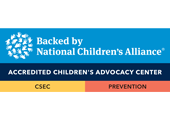A School’s Critical Role in Safety
August 14, 2023
As summer comes to a close, it’s time for parents and caregivers to get ready for the start of the new school year. Whether it is the first year their child is entering school or the last year of high school, there is a whole host of items, schedules and plans needed for students of every age. Books to read, school supplies, bus schedules, lunchboxes, clothing, shoes, sports equipment; the lists of these materials, needs and consent forms come weekly, sometimes daily, at the beginning of the school year for parents to review, sign, and return. In fact, schools tend to do an incredible job of communicating. However, there is a topic we believe needs to be included in the information schools share with parents and caregivers, and that is the school’s policy on child abuse prevention, recognition, response, and reporting.
Schools play a critical role in child abuse recognition and response, and teachers are often the front line. When schools play such a critical role of recognizing and reporting abuse, one should expect there to be comprehensive, consistent protocols between schools and districts, and the regular communication of these protocols to families. However, this most often is not the case.
While there is specific session law in Massachusetts which requires every school and athletic program to “to develop an interscholastic athletic head injury safety training program,” there are no such requirements for child abuse prevention, recognition, response or reporting. There are requirements in Massachusetts for teachers and school staff to undergo training to understand their roles as Mandated Reporters, yet there are no requirements for specific policies or procedures regarding this within any school district in Massachusetts. In many instances this leads to confusion, disorganization, and at times a loss of effective reporting in school districts that continues to this day. Minimal or over-complicated policies related to recognizing and reporting abuse of children in schools reduces the likelihood that mandated reporters in school make effective reports, which may increase the possibility of children being harmed.
…there are no standards for child abuse prevention at the legislative level as a part of the ‘safe and supportive school’ requirements.”
What if we took this a step further? While we know our culture and communities already place an enormous burden on schools, it must be said that for several years now there has been a near constant conversation related to safety in schools. Schools teach young children how to stop, drop, and role, “just say no”, dial 9-1-1, and look both ways to cross the street, and how to hide from active threats or active shooters. However, where are the conversations about body safety? Consent? Defining abuse and why it’s not ok? Talking about domestic violence and why it’s ok to ask for help?
There are no requirements in Massachusetts for these types of conversations. Additionally, there are no specific requirements or standards for child abuse prevention at the legislative level as a part of the “safe and supportive school” requirements. Anything which could be considered as a standard for this level of care is often left to school committees at a local level, who most often are not child abuse experts.
While there is a lot that schools do well in communicating to the communities they support, there is great room for improvement when it comes to communicating about child abuse prevention, recognition, response, and reporting policies. As a community we regularly don’t ask to see a school’s policies, procedures and protocols related to disclosures of abuse, or ask about if schools teach prevention. If something is not discussed, it won’t be addressed. If it is not addressed, it won’t be improved. As a community, we deserve to have a unified practice of how all schools, at every grade level, operate towards the prevention, early recognition, and effective response and reporting of child abuse on the Cape & Islands.
If there are any parents, caregivers, teachers, school committees or superintendents who would like to support this endeavor, please contact Jacob Stapledon, Children’s Cove’s Community Engagement and Education Program Manager, at Jacob.Stapledon@childrenscover.org to start this conversation.






